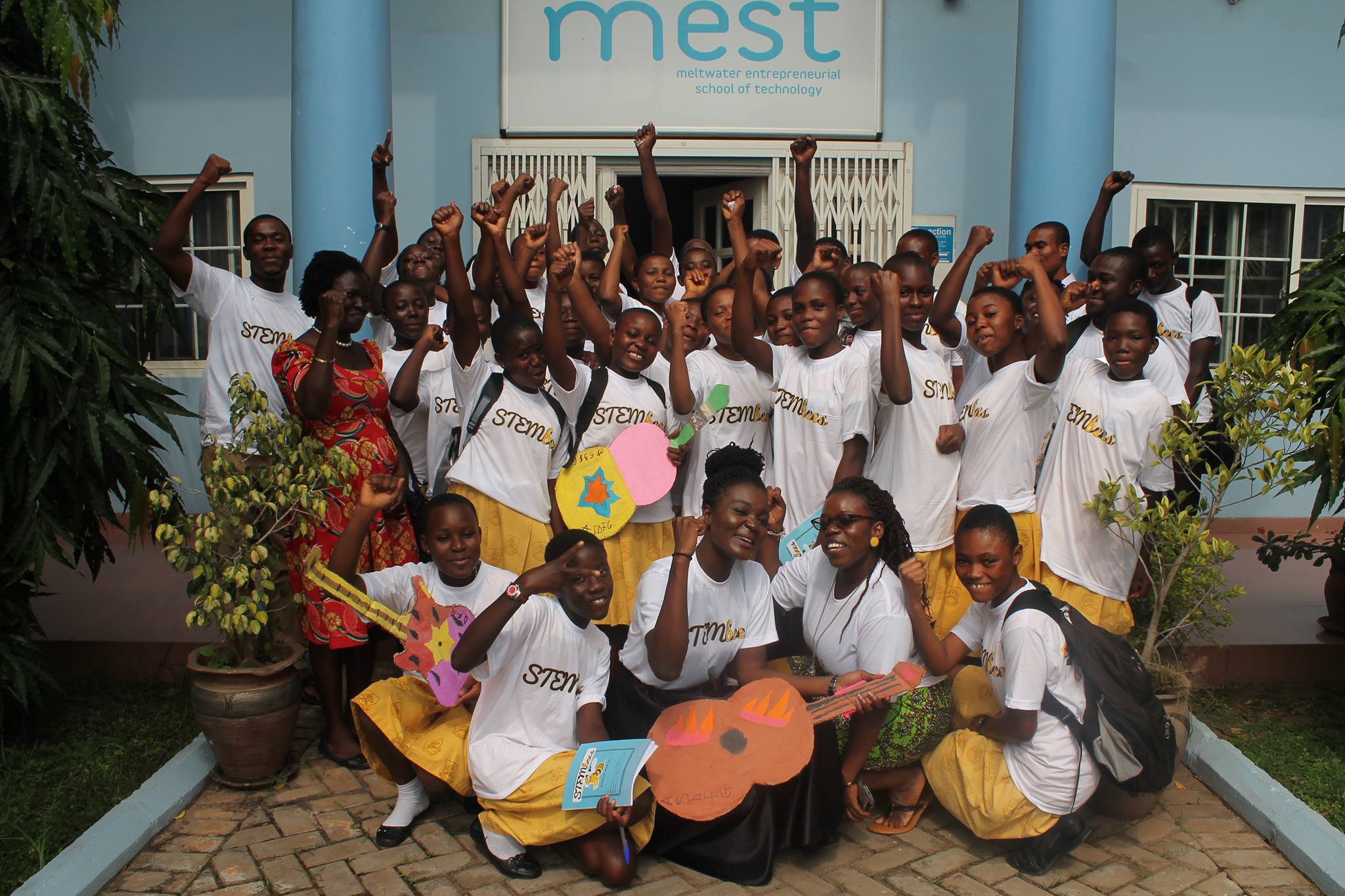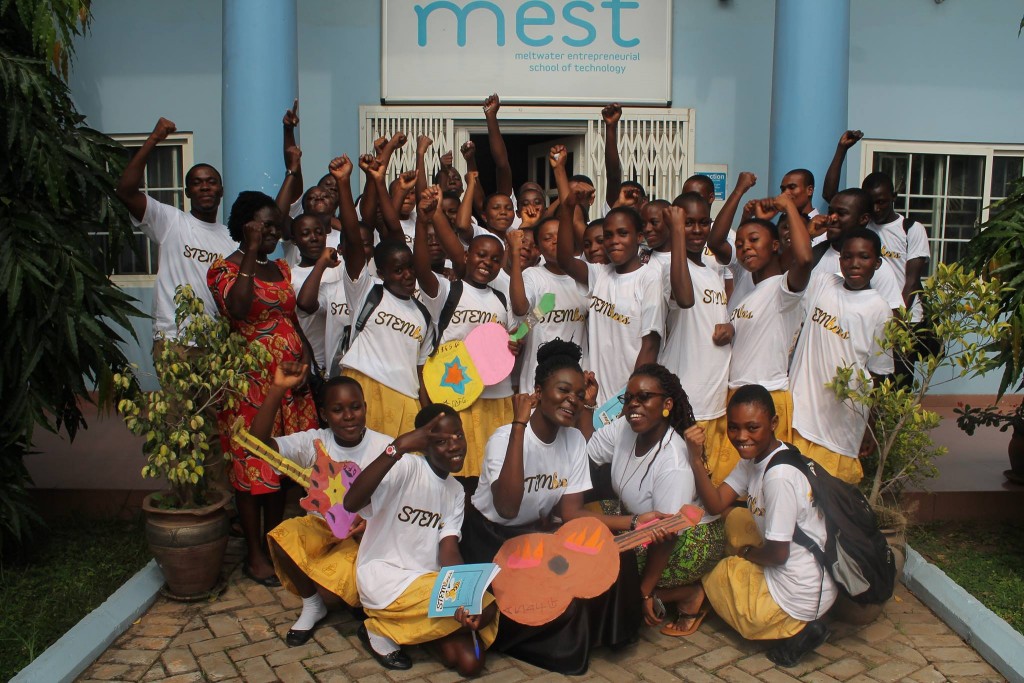Innovation and metamorphosis in science and technology are significant factors in achieving advancement in our daily lives. Women need to be included in this process because we have come to realize that, through many examples, empowering women through science and technology education will transform many countries. Thus, Africa’s encouragement of women to pursue education and careers in technology should be widely and constantly acknowledged.
Today, we acknowledge tech entrepreneur and co-founder of Vestracker, a logistics and information management service for the freight forwarding industry.
Meet Linda Ansong.
Linda had her high school education at Holy Child High School, where she studied General Science, after which she took a basic course in Software Development at the Kofi Annan ICT centre, which galvanized her interest in technology. She then attended the Kwame Nkrumah University of Science and Technology to study Actuarial Science. Upon the completion of her university education, she was offered a full scholarship to study Software Entrepreneurship at the Meltwater Entrepreneurial School of Technology (MEST).
● When did you realize you had interest for Technology?
”As a child, I was always curious to know how things worked. I would dismantle the VCR player and try to reassemble it. I was really interested in sci-fi movies and wanted to know how their technology worked. After high school, I attended the Kofi Annan ICT centre where I studied Foundations in Software Development (FSD), and that is when the interest was created. I ended up offering Actuarial Science in university which had some aspects of technology. I used applications like MATLAB and R during my studies. It then dawned on me that technology could be used in any industry to improve efficiency and productivity. After my university education I got the opportunity to study Software Entrepreneurship on a full scholarship at the Meltwater Entrepreneurial School of Technology. I then went on to start a software company, Vestracker, with three colleagues. I also started STEMbees to train young smart girls in STEM.”
● What has been your greatest achievement?
“My greatest achievement, I would say, is establishing the STEMbees Organization, and changing the lives of many children in Ghana. However, when it comes to awards, the one I’m most proud of winning, with my friend Lovell Larbie, is the MTN mobile application challenge in the education category. Our application, “Wodakye” helps young Ghanaians prep for the West African Senior School Certificate Examination (WASSCE) in a fun and interactive way.”
● Tell us about Vestracker, and what inspired it.
“Vestracker is a logistics and information management service for the freight forwarding industry. We make acquiring, sharing and managing freight information easy and accessible. After my two year program at MEST, my team and I had a brainstorming session trying to figure out the problems in different industries and how we could use technology to solve them. We settled on Vestracker for the freight forwarding industry because every team member including myself had had some kind of experience with the freight or shipping industry; mine being with both of my parents who are importers. Due to bad information given to them by their freight forwarders, they keep paying fines in the thousands of dollars. This made it personal, and I felt a solution like this will not only help freight forwarders be more efficient, but will also help people like my mom and dad.”
● What are the benefits of Vestracker, and how does it solve freight issues?
“For both small and multinational freight forwarders, the problem is clear; they spend valuable time and resources inefficiently tracking shipments, often across several shipping lines, and even more resources storing and updating all the multiple stakeholders involved in each transaction. What Vestracker offers is a one stop shop for all freight information, we automatically track and update our clients with information on their consignments as well as give them an easy and efficient way to update their clients and other stakeholders in a timely manner.”
● Tell me about how and why you started STEM bees.
“My cofounder, Angela, and I studied Civil Engineering and Actuarial Science respectively in the university, and we realized then that the ratio of boys to girls in those fields was terrible. After school we found ourselves at the Meltwater Entrepreneurial School of Technology to study Software Entrepreneurship, and the ratio there was not any better. We then decided to start STEMbees to encourage, mentor and empower young girls to pursue careers in STEM. I believe by interacting with women who have excelled in STEM careers, these girls will feel more confident and empowered to pursue STEM related fields.”
● What are your biggest hurdles being a woman in tech?
“The hurdles I face are not because I am a woman in tech, but because I am a woman. I believe I would face the same hurdles no matter the industry I find myself in, but what I guess I would love is if there were more women in the industry to give a woman’s touch to most of the products we see. Sometimes men don’t get the fine details, and it helps to have a woman on the team who understands.”
● Is Ghana truly embracing the use of technology to solve problems?
“We are trying to embrace it. Companies are now looking at how they can improve their efficiency by using technology. However, I would say we have a long way to go. There are still people who don’t want to do online payment because of “Sakawa”. It prevents a lot of innovative ideas that depend on online payments from being developed. We also find up-and-coming developers wanting to build the next Facebook or WhatsApp but ignoring pertinent issues in their communities that could be solved using technology. I think what we should do as a country is to teach our youth how to use technology to solve problems in their communities, and that way, right from childhood, we can understand the importance of technology and truly embrace it.”
● In your opinion, how can technology be made more adaptable and suitable for the African setting?
“In my opinion, the only way we can make technology more adaptable is if we build products people don’t have to adapt to. What I mean is, developers have to understand the problems in their communities and try to find innovative solutions to them using technology. What we find developers doing is copying products from the diaspora and trying to get Ghanaians to adapt to it. If we build tech products in a way Ghanaians are used to, with the learning curve not being so steep, it would be easier for people to use them.”
For more information on Vestracker, click here.
This article first appeared on Levers In Heels.





